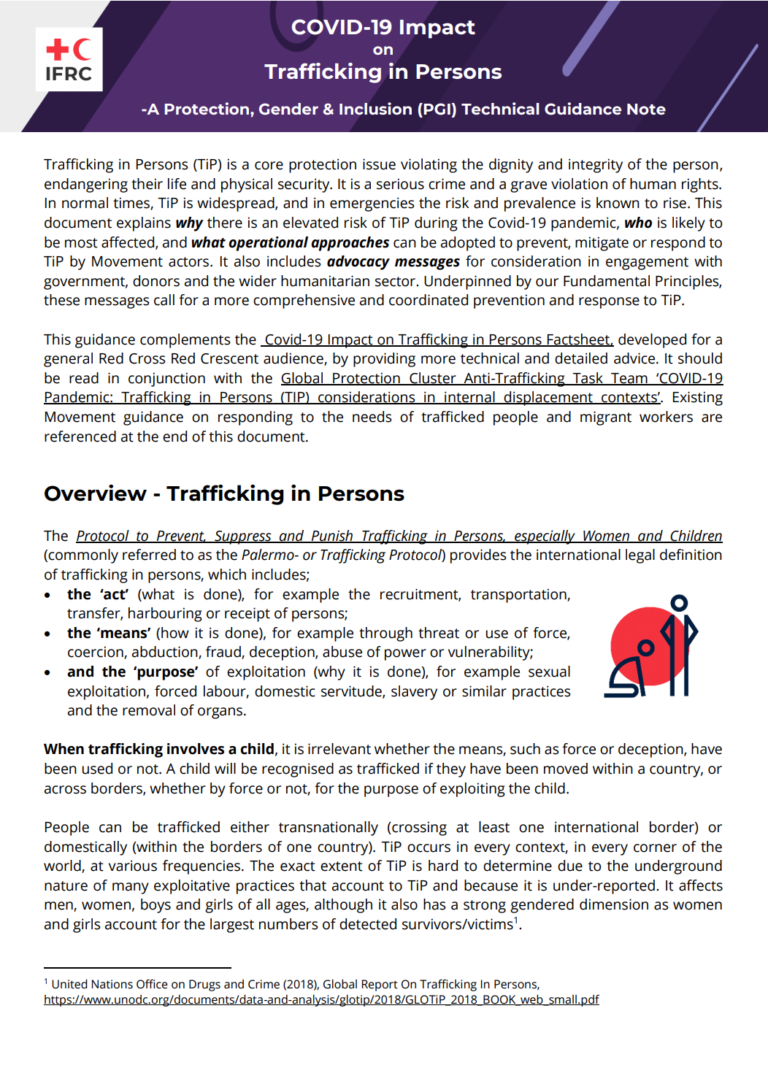Trafficking in Persons (TiP) is a core protection issue violating the dignity and integrity of the person, endangering their life and physical security. It is a serious crime and a grave violation of human rights. In normal times, TiP is widespread, and in emergencies the risk and prevalence is known to rise. This document explains why there is an elevated risk of TiP during the Covid-19 pandemic, who is likely to be most affected, and what operational approaches can be adopted to prevent, mitigate or respond to TiP by Movement actors. It also includes advocacy messages for consideration in engagement with government, donors and the wider humanitarian sector. Underpinned by our Fundamental Principles, these messages call for a more comprehensive and coordinated prevention and response to TiP.

